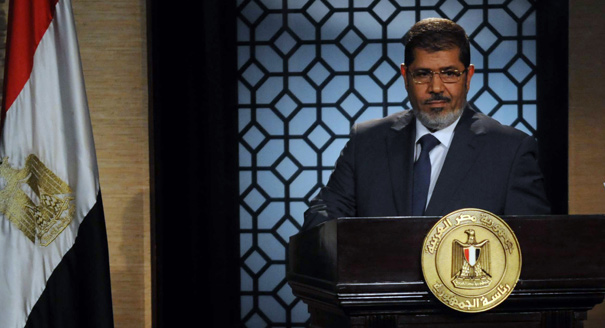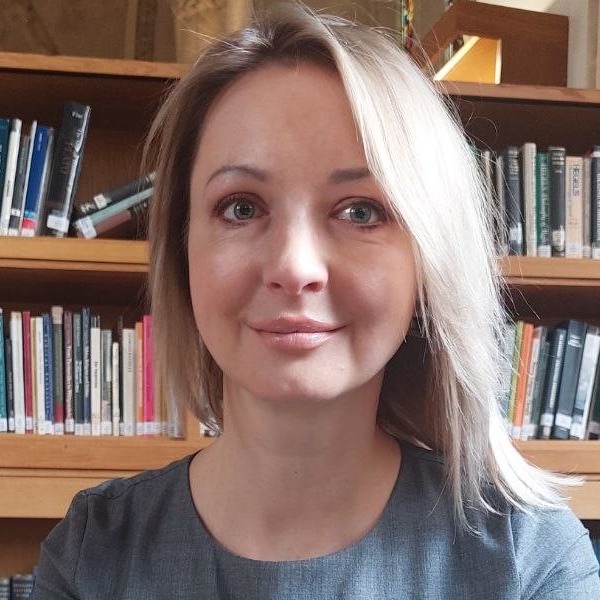Washington and New Delhi should be proud of their putative deal. But international politics isn’t the domain of unicorns and leprechauns, and collateral damage can’t simply be wished away.
Evan A. Feigenbaum

Source: Getty
With an economy on the brink of collapse and rising popular discontent with the Muslim Brotherhood, Egypt's leadership urgently needs to address its economic, political, and security challenges.
My recent visit to Egypt was disquieting. The country’s political forces are focused on gaining or maintaining power. The dominant force, the Muslim Brotherhood, is not inclined to dialogue and is openly trying to consolidate its political grip through elections. And while liberal forces have lots of ideas, they have few followers.
It’s now clear that the immense expectations created by the 2011 revolution have not materialized—quite the contrary actually—and the economy is dangerously close to collapsing. Egypt’s leadership needs to address head-on the country’s economic, political, and security challenges. Heeding its liberal civil society, not hammering it, and heeding its Western partners, not ignoring them, could help.
While the illusion for some may have been that the fall of a dictator would be a miracle cure for the country’s deeply rooted economic worries, miracles did not happen—the opposite happened. The political uncertainties generated by the revolution, the street violence, the disorientation of the security apparatus, and the elusive national consensus coalesced to worsen Egypt’s economic and financial situation.
The violence and worries generated by the uprising caused four main problems: tourism fell sharply, foreign direct investment shied away, Egyptian domestic capital fled, and the central bank quickly started running out of usable reserves. The economy is now teetering on the brink of disaster.Statistics circulating among Western embassies in Cairo are sobering. Against the ongoing domestic crisis, Egypt’s pre-revolution annual growth rates fell sharply, and domestic interest rates increased. Foreign currency reserves dropped from $36 billion to below $14 billion and not all of this is even considered “usable reserves.” The bad news doesn’t stop there. Manufacturing industries in need of hard currency encounter harsh restrictions, fuel shortages are common, and the number of people living on less than $2 per day rose substantially.
Unsurprisingly, Egypt’s government bonds were downgraded in February from B2 to B3 by Moody’s and a “further possible downgrade” is under review. Meanwhile, a decision to sign a vital deal with the IMF keeps being postponed.
The effects of this downturn were clear when I visited Egypt recently. Watching the emptiness of most hotel lobbies in Cairo and hearing the casual complaints of those linked to the tourism industry made it easy to understand how problematic the drop in the flow of tourists and businesspeople has become.
Most of Egypt’s international partners agree that the situation is acutely serious. During his recent visit to Egypt, U.S. Secretary of State John Kerry said that there must be “a willingness on all sides” to find “meaningful compromises on the issues that matter most to all of the Egyptian people.” On the economy, Kerry added that it was “paramount, essential, urgent that the Egyptian economy get stronger, that it get back on its feet.”
This dire situation failed to trigger a closer dialogue between liberal forces and the Muslim Brotherhood to find a solution. No clear economic salvation program has emerged and calls for a national unity government have been ignored. Instead, since November 2012 street violence has continued almost uninterrupted in the three cities of Port Said, Ismailia, and Suez, drawing attention to the safety and security of the Suez Canal, a strategic infrastructure of worldwide importance.
While political actors and civil society activists are all very much aware of this situation, no compromise is taking place. The Muslim Brotherhood is entirely focused on one single goal: consolidating its hold on power through the ballot box. This is a risky bet, as popular discontent with the Brotherhood has risen substantially since November 2012.
Inevitably, a post-revolution nostalgia surfaced among the population, much like in the aftermath of the fall of the Soviet empire. Egyptian society is now deeply polarized, split between Islamists, Salafists, and liberals, while a large share of a disgruntled population stages protests, in turn engendering more uncertainties. Even more disquieting is the lassitude among the new generation of politicians, some of whom may not run for office again next time.
While not exclusive to Egypt, a “democratic paradox” has surfaced: the democratic opening has allowed the Muslim Brotherhood to gain power, but the group is now resisting more open rule. The ballot box gives the Muslim Brotherhood a clear lead and enables it to appoint conservatives to senior civil servant positions. A new word has appeared to describe this process: ikhwanization (ikhwan is Arabic for “brother”). This is worrying liberals—in fact, it worries a large segment of the population—but the Muslim Brotherhood has so far refused to conduct any kind of broad-ranging dialogue, stressing the legitimacy it enjoys from the election of President Mohamed Morsi, albeit in a vote that saw a very low turnout. Some opposition forces are calling for a boycott of the forthcoming legislative elections.
Unlike Tunisia—where Ennahda, the Islamic party holding a strong minority of seats in the Constituent Assembly, had to backtrack and accept a new coalition government that includes nonpolitical ministers—Egypt seems to be in a total political deadlock over the way forward. Kerry’s call for “meaningful compromises” reflects a genuine worry from Egypt’s international partners.
If the political impasse was not enough, the security apparatus is adding to the concerns. Egypt’s police, which came out of the revolution badly bruised, doesn’t have the security situation under control, while some of its most conservative members that were previously excluded from its ranks are now trying to get their jobs back.
The army, for its part, has clearly signaled that it does not want to be a party to political battles, but it has also warned that there are redlines. Where exactly these redlines lie remains a matter of debate, but prolonged and generalized civil unrest or, worse, disruption of international traffic in the Suez Canal would undoubtedly constitute game changers for the Egyptian armed forces. The first signs that this may come to pass appeared with protests in Port Said on March 8–10.
When I was in Cairo, I was struck by the deep sense of ownership of the revolution displayed by politicians of all sides and by civil society, in particular the youth. This is one of the main reasons for the widespread popular discontent with the Muslim Brotherhood and, in turn, with what is often perceived as unqualified support by foreign partners for the Brotherhood.
Some foreign partners do not seem to matter much to Egypt’s citizens. China is perceived to be only remotely interested in the situation on the ground, while Russia is rejected for its support of the Syrian regime. And the European Union is difficult for people to identify with a host of European representatives visiting the country in the last few months.
So, does the West matter in today’s Egypt? Undoubtedly, both the United States and the European Union are currently not enjoying a high degree of legitimacy among the leaders of the Muslim Brotherhood and the Salafists for the obvious reason that they sided with the Mubarak regime for almost thirty years. But this doesn’t mean the West is irrelevant.
It’s worth asking whether the West and Islamist parties in Egypt share the same—or at least a mutually compatible—values system. Is there agreement on issues such as the freedom of expression, education, the role of civil society, coexistence of different lifestyles, and women’s rights? Nothing that I heard in Cairo reassured me on this front. When in Cairo on February 16, I spoke in favor of women’s rights and empowerment and wondered if there was a common ground on fundamental values, the only reply I received was that women primarily “suffered due to socioeconomic development issues.”
And the West could be pushed even further to the side. It is uncertain—at least at this stage—that the Muslim Brotherhood’s strong preference for a majoritarian system will be amended to include a reasonable dose of dialogue and consensus, as Egypt’s Western partners and liberal opposition are asking.
It may well be that in the short and medium term the Egyptian revolution translates into one authoritarian rule replacing another, with more or less the same trappings: police violence and torture, suppression of civil society voices, and corruption. This would unleash immense frustrations in Egypt and widen the gap with the country’s Western partners.
Yet, I detected a glimmer of hope when talking to a vibrant civil society made up of diverse people ready to take risks and stimulate public debate. This is the true legacy of Egypt’s revolution: citizens, even the young ones, deprived of the right to speak up for so long, have now discovered the virtues of a robust debate and know that the ballot box should not be the only determining factor in political decisionmaking in a democracy.
Predictably, Kerry insisted on this point. “A vibrant democracy stimulates business, it supports a vibrant NGO sector, it encourages full political participation and universal freedoms, and respects the rights of women and for people of all faiths.” The United States has traditionally supported civil society organizations in Egypt, and the EU provides substantial grant funding for NGOs.
But giving a role to civil society is not in Egypt’s political tradition. Under the Mubarak regime, civil society organizations were suspected of being “Islamist” and were therefore closely monitored. Strangely enough after a revolution started by the people and belatedly joined by the Muslim Brotherhood, giving a voice to civilian actors doesn’t seem to be in the cards any more than before.
Drafts for a new law on NGOs are circulating. The fear is that the end result may be even worse than the pre-revolution situation. Some worry that a coalition comprising the intelligence services, which traditionally lean toward more restrictive policies, and the Muslim Brotherhood, which is wary of being challenged by liberal voices, is creating a repressive piece of legislation.
Many of the young activists I met in Cairo feel that they have been “robbed” of their revolution. It would be an immense loss if these forces of change and democracy were once again suppressed. The Muslim Brotherhood should see this civil society enthusiasm as a major new feature in Egypt’s political life and a force for change toward an open society.
Egyptian society may be highly polarized, but progress will result from dialogue, not from revenge. Wisdom should prevail, and Egypt’s new rulers should heed their brave citizens.
Both the ruling Muslim Brotherhood and Egypt’s Western partners are now at a crossroads.
The Brotherhood must make a choice: either maintain a long-standing partnership between Egypt and the West, especially the United States, or build a radically new frame of reference for Egypt’s society and its foreign policy. While populist inclinations and a feeling of revenge might lead to the latter, economic realities advise in favor of the former.
Egypt still depends on foreign support, tourism, Suez Canal revenues, and peace with Israel in order to feed its people. This reality is not altered by the ballot box. Egypt has no credible alternative to its economic and financial ties with the European Union and the United States, or to its participation in the global economy. In the end, China is far away, Russia has little to offer, and Turkey—despite some of its rhetoric—is clearly perceived as a NATO member and thus part of the West.
As for the Western partners, apart from preserving the Egypt-Israel peace treaty and Suez Canal operations, there is no “empty chair” option. As difficult as the relationship with the Muslim Brotherhood may prove to be, there is only one way forward: pursue a close dialogue with those elected, continue to advocate consensus and compromise, and keep defending the fundamental values of democracy.
Egypt’s Muslim Brotherhood may feel very strongly about its short-term achievements and the values it defends. However, it should not forget that Egyptian society is much broader than those who voted for it and that Egypt matters on the global stage for very specific reasons. These hard facts are actually more of an opportunity than a constraint.
Carnegie does not take institutional positions on public policy issues; the views represented herein are those of the author(s) and do not necessarily reflect the views of Carnegie, its staff, or its trustees.
Washington and New Delhi should be proud of their putative deal. But international politics isn’t the domain of unicorns and leprechauns, and collateral damage can’t simply be wished away.

Evan A. Feigenbaum
Senior climate, finance, and mobility experts discuss how the Fund for Responding to Loss and Damage could unlock financing for climate mobility.

Alejandro Martin Rodriguez
Local political and social dynamics will shape the implementation of any peace settlement following Russia’s war against Ukraine—dynamics that adversaries may seek to exploit.

Daryna Dvornichenko, Holger Nehring
The EU lacks leadership and strategic planning in the South Caucasus, while the United States is leading the charge. To secure its geopolitical interests, Brussels must invest in new connectivity for the region.

Zaur Shiriyev
The uprisings showed that foreign military intervention rarely produced democratic breakthroughs.


Amr Hamzawy, Sarah Yerkes